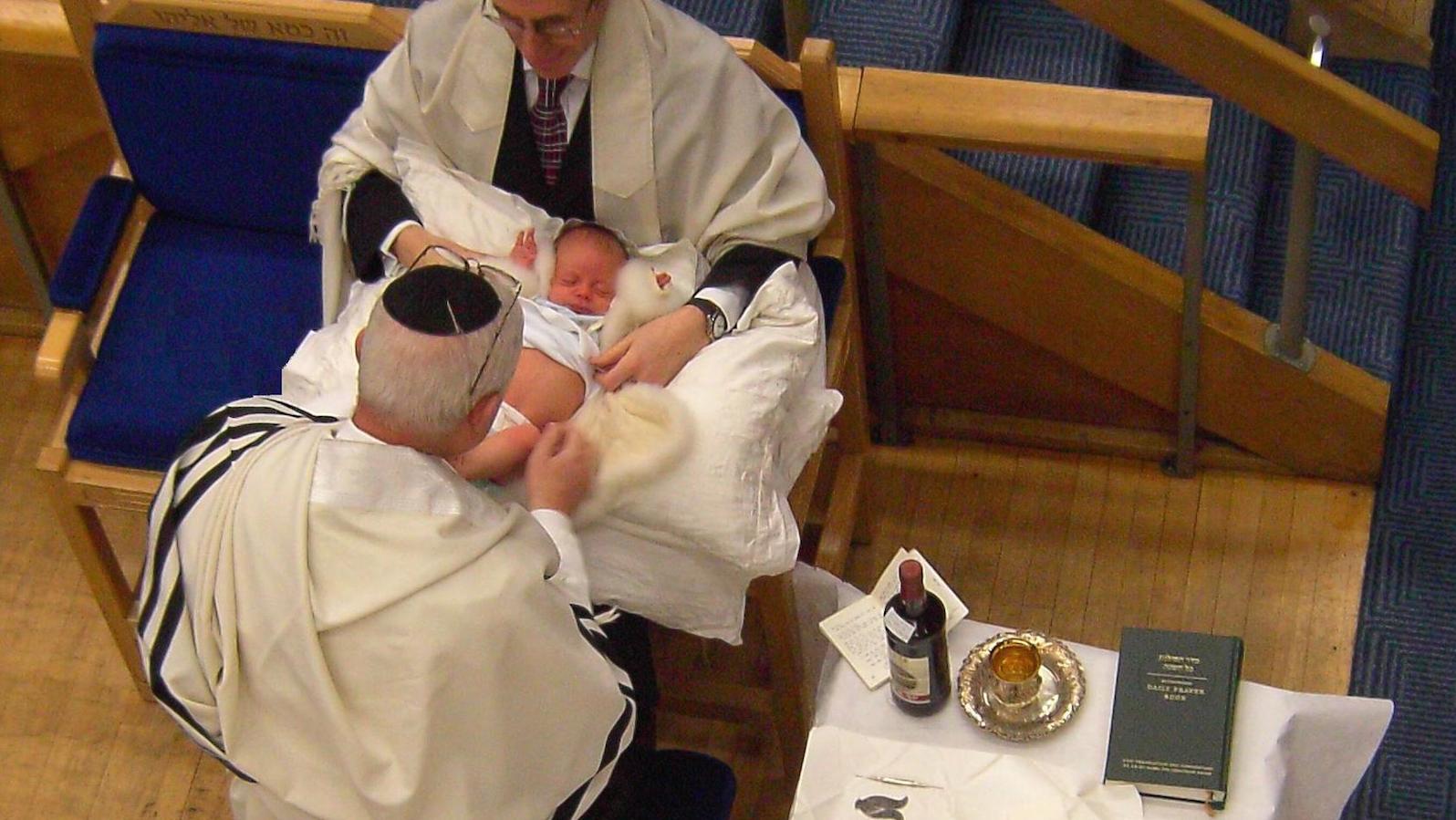The Jewish practice of circumcision as a demonstration of the covenant with God dates back to the Book of Genesis (in Parashat Lech Lecha), when God commands Abraham to circumcises himself and his offspring. This rite is observed by Muslims as well.
In modern times, circumcision has sparked controversy both within and outside the Jewish community, with some critics viewing it as inhumane to cut the foreskin of a newborn’s penis.
In the 19th century, some leaders of the then-nascent Reform movement, objected to circumcision, with one such leader, Germany’s Abraham Geiger, describing it as a “barbaric, bloody act,” according to Louis Jacobs’ The Jewish Religion: A Companion. However, the movement ultimately embraced the practice.
In the United States, circumcision is common not only among Jews and Muslims, but in the population at large: According to the Centers for Disease Control and Prevention, in 2010 almost 60 percent of newborn boys were circumcised before leaving the hospital. (Jews traditionally perform the circumcision later, on the baby’s eighth day, in a ceremony called a brit milah, or bris.)

Help us keep Jewish knowledge accessible to millions of people around the world.
Your donation to My Jewish Learning fuels endless journeys of Jewish discovery. With your help, My Jewish Learning can continue to provide nonstop opportunities for learning, connection and growth.
Many American parents opt to circumcise their sons because of the perceived health benefits. The American Academy of Pediatrics in 2012 stated that the health benefits outweigh the risks of undergoing circumcision. Circumcision has been linked to lower rates of HIV, penile cancer and urinary tract infections. However, critics of the practice say the benefits are not significant enough to justify the procedure.
Outside the United States, circumcision is less common among those who are not Jewish or Muslim. Numerous European countries have considered legislation to outlaw or restrict the practice, with activists saying it violates the newborn’s rights.
In the late 20th and early 21st centuries, some liberal Jews have voiced discomfort with circumcision and opted not to circumcise their sons. According to a 2017 New York Times article, while “the great majority of Jewish parents still circumcise, and opting out remains almost taboo in much of the mainstream,” the practice is quietly coming under scrutiny from some Jews. The article noted that “a number of parents” who opted out of the circumcision “did not want to speak on the record about their decision, and some rabbis who had done alternative bris ceremonies asked not to be named publicly.”
“Right now, there is a ‘don’t ask/don’t tell’ policy within much of institutional Judaism when it comes to parents skipping circumcision,” Rebecca Wald, the founder of Beyond the Bris, an online community for parents who are questioning circumcision, told the Times.
In 2013, The Washington Post reported that a “small but growing number of Jews are questioning the ancient ritual of circumcision.” That article noted that even some parents who were having their sons circumcised, are avoiding having a public brit milah ceremony, feeling that this celebration of the rite is unseemly. Similarly, the Israeli newspaper Haaretz reported in 2012 that a growing number of secular Jewish Israelis have also avoided the ritual. However, it is unclear how widespread this trend is in the Jewish community, and many Jews, even those who do not view Jewish law as binding, believe circumcision is one of Judaism’s most significant and defining traditions.
This article on our partner site Kveller explains the numerous reasons for circumcision.
Below are several personal accounts from our partner site Kveller by Jewish parents explaining their decisions to circumcise (or not circumcise) their sons:
Parents Who Opted to Circumcise
My Circumcision Decision
Why I Circumcised My Sons
How My Son’s Circumcision Made Me A Better Mother
A Parent Who Opted Against a Public Brit Milah Ceremony
The Second Time Around, I’m Skipping the Bris
Parents Who Opted Against Circumcision
Should I Circumcise My Son? Why I Decided No
Why I’m Against Circumcision



